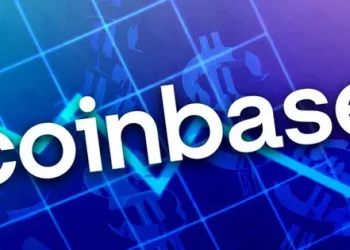OKCoin is a prominent cryptocurrency exchange that provides a platform for buying, selling, and trading a variety of digital assets. While it offers a range of services globally, its availability is not universal. Regulatory constraints and state-specific regulations influence where OKCoin can operate. This article explores the states in the United States where OKCoin is prohibited and provides an overview of the factors affecting its availability.
Understanding OKCoin’s Availability
Overview of OKCoin
OKCoin is a global cryptocurrency exchange headquartered in San Francisco, California. It offers a range of services, including spot trading, futures trading, and staking. As a major player in the crypto exchange market, OKCoin aims to provide secure and efficient trading solutions.
Regulatory Environment in the U.S.
The cryptocurrency industry in the United States is subject to a complex regulatory landscape. Various federal and state agencies oversee different aspects of cryptocurrency transactions, including securities regulations, anti-money laundering (AML) requirements, and consumer protection laws. This regulatory environment can impact the availability of exchanges like OKCoin in different states.
States Where OKCoin Is Prohibited
Regulatory Challenges
OKCoin’s availability in different states can be influenced by several regulatory challenges:
State-Specific Regulations: Some states have stringent regulations for cryptocurrency exchanges. These regulations can include requirements for licenses, compliance with local financial regulations, or specific consumer protection laws.
Licensing Issues: Obtaining the necessary licenses to operate in certain states can be complex and costly. OKCoin, like other exchanges, must navigate these regulatory requirements to offer its services legally.
Legal Restrictions: In some states, there may be outright prohibitions on cryptocurrency trading platforms due to legal restrictions or regulatory decisions.
List of States Where OKCoin Is Prohibited
As of the latest information available, OKCoin is prohibited or restricted in the following states:
New York: New York has some of the most stringent cryptocurrency regulations in the United States. The state requires exchanges to obtain a BitLicense to operate legally. Due to the complexity and cost of obtaining this license, OKCoin is not available to residents of New York.
Hawaii: Hawaii also imposes strict regulations on cryptocurrency exchanges. The state requires exchanges to hold a license under the Hawaii Money Transmitters Act. OKCoin does not operate in Hawaii, primarily due to these licensing requirements.
Connecticut: Connecticut has regulatory requirements for cryptocurrency exchanges that can be challenging to meet. As a result, OKCoin does not offer its services in Connecticut.
Washington: Washington state has specific regulations that apply to cryptocurrency exchanges. These regulations include licensing requirements and compliance with state financial laws. OKCoin is not available in Washington due to these regulatory constraints.
Alabama: Alabama has implemented regulatory requirements for cryptocurrency exchanges, including registration with the Alabama Securities Commission. OKCoin does not operate in Alabama, reflecting the challenges associated with meeting these regulatory demands.
Reasons for Prohibitions
Compliance Costs
The costs associated with obtaining licenses and meeting regulatory requirements can be significant. For many exchanges, including OKCoin, the expense and complexity of compliance can outweigh the potential benefits of operating in certain states.
Regulatory Uncertainty
In some states, the regulatory environment for cryptocurrencies is still evolving. The uncertainty and potential for changing regulations can make it challenging for exchanges to commit to offering services in these areas.
Legal and Operational Challenges
Certain states have legal and operational challenges that can hinder the ability of exchanges to operate. These challenges can include stringent consumer protection laws, financial regulations, or other state-specific requirements.
Impact of Prohibitions on Users
Limited Access to Services
Residents of states where OKCoin is prohibited have limited access to the exchange’s services. This limitation can affect users’ ability to trade cryptocurrencies, access specific trading pairs, or use advanced trading features offered by OKCoin.
Alternative Platforms
Users in prohibited states may need to seek alternative cryptocurrency exchanges that are compliant with state regulations. Many exchanges operate in multiple states and may offer similar services to those provided by OKCoin.
Regulatory Compliance
Users should be aware of the regulatory environment in their state and ensure that any exchange they use complies with local regulations. Engaging with exchanges that are properly licensed and regulated can help protect users and ensure a secure trading experience.
Future Considerations
Regulatory Changes
The regulatory landscape for cryptocurrencies is continuously evolving. Changes in state regulations or updates to licensing requirements could potentially impact OKCoin’s availability in restricted states. Staying informed about regulatory developments is essential for both exchanges and users.
Expansion Opportunities
OKCoin and other cryptocurrency exchanges may explore opportunities to expand their services into new states as regulatory environments become more favorable. Increased clarity and support from regulators could lead to changes in the availability of services in currently restricted areas.
User Education
Educating users about the regulatory landscape and available alternatives is crucial. Understanding the implications of operating in regulated versus unregulated environments helps users make informed decisions about their trading platforms and practices.
See also: How Much Does Binance Charge for Withdrawal?
Conclusion
OKCoin is prohibited in several states across the United States due to a combination of regulatory challenges, licensing requirements, and legal restrictions. States such as New York, Hawaii, Connecticut, Washington, and Alabama are among those where OKCoin does not currently operate.
These prohibitions highlight the complex and evolving nature of cryptocurrency regulations in the U.S. For residents in these states, finding alternative exchanges that comply with local regulations is essential. Staying informed about regulatory changes and understanding the impact on cryptocurrency trading platforms can help users navigate the challenges of the evolving financial landscape.
As the regulatory environment continues to develop, both exchanges and users must remain adaptable and proactive in managing their cryptocurrency activities.
Related topics:
How to Pay with PayPal in Binance

















